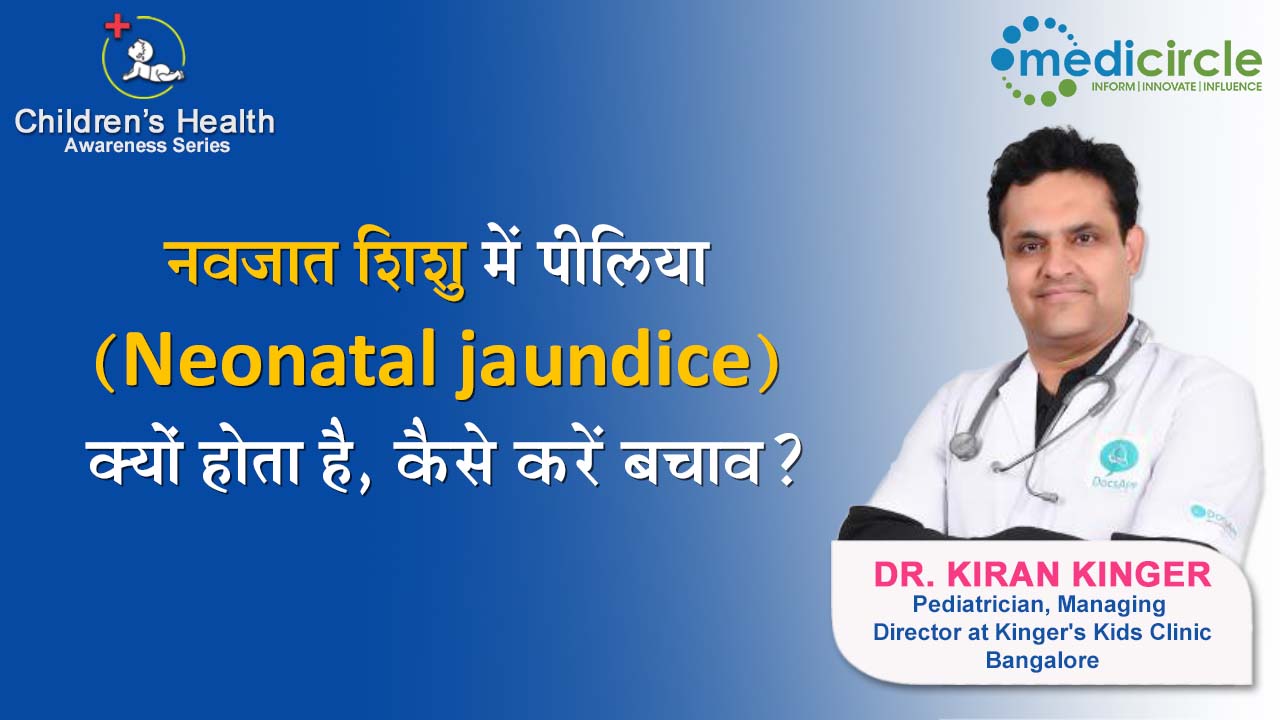Dr. Kiran Kinger is the Managing Director at Kinger’s Kids Clinic, Bangalore. For the past 27 years, he has been working in this field.
Statistics have revealed that jaundice in newborns is the most common compared to toddlers and adults. Around 60% of newborns are likely to experience jaundice symptoms.
Jaundice
Jaundice is a yellow discoloration of the skin. It is not a diagnosis or disease, but rather a symptom or sign. Newborns suffer from different jaundice called Neonatal jaundice. Jaundice in old-age, children, or adults is different from this. Jaundice in adults is a liver disorder unlike in newborns. Jaundice in newborns is referred to as Neonatal Jaundice.
Pregnancy and Jaundice
Dr. Kiran emphasizes, “Unhealthy pregnant mothers or negative blood group mothers need extra care and so is the need for newborn babies. Mothers should not get sick during their pregnancy period because sick newborns are more likely to get jaundice when compared to healthy newborns. Thus, mothers should take their best care during the whole period of pregnancy. Healthier newborns are healthy and sick newborns need some special care including neonatal intensive care. Hence, mothers have to be on alert.”
Treating Neonatal jaundice
- The feeding of the baby should be taken care of.
- Phototherapy – Phototherapy is the use of visible light to treat severe jaundice in the neonatal period. The yellow pigment comes out through urine. And the skin will get back to normal.
The red flag of Neonatal Jaundice
-
Baby looking more yellow.
-
Higher levels of bilirubin levels in blood tests. Blood tests measure the amount of bilirubin in the blood.
Feeding in Neonatal Jaundice
Feeding should be done approximately every two hours. Regular feeding should be given for smaller intervals so that the baby is well hydrated. Adequate feeding is very much helpful in treating jaundice. Feeding should be frequent.
FAQs
1. Do infants need special attention in Jaundice?
Yes, special attention to hydration, regular feeding, and monitoring
2. Is Jaundice life-threatening for a baby?
If it is untreated, unrecognized, or not taken care of, it can become life-threatening.
3. How long does jaundice last in a newborn child?
It can range from a few days to a few weeks, provided, if given timely attention, it will resolve.
(Edited by Renu Gupta)

 Newborn jaundice occurs when a baby has a high level of bilirubin in the blood. Jaundice in old age children or adults is different from this. Read on to know authentic and more reliable information on Newborn jaundice from expert Dr. Kiran Kinger.
Newborn jaundice occurs when a baby has a high level of bilirubin in the blood. Jaundice in old age children or adults is different from this. Read on to know authentic and more reliable information on Newborn jaundice from expert Dr. Kiran Kinger.






.jpeg)


.jpg)









.jpeg)





.jpg)




.png)



